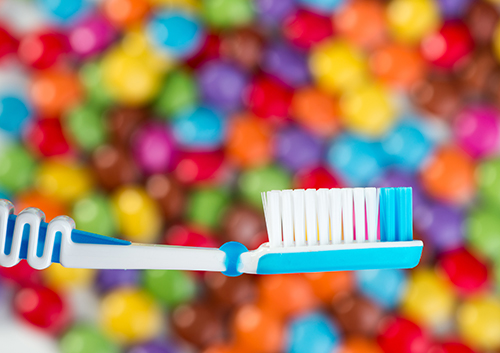What exactly is biofilm?
June 12th, 2025

Biofilm is a protective home for bacteria that’s composed of microorganisms. Biofilm can be found in wet places such as ponds, sewers, and bathroom drains, and it also grows on metals and minerals.
But biofilm can also be found in your mouth, in either healthy or diseased form. Both are composed of the same compounds, but when they combine with certain amino acids or chemicals, diseased biofilm will begin to destroy your enamel. You might notice this as a slimy yellow buildup of dental plaque on the surface of your teeth.
Biofilm takes form when free-swimming bacterial cells land on a surface and attach in a cluster. The cells begin to multiply and form a micro-colony that promotes diverse bacterial species to grow. To prevent biofilm from settling in your mouth to begin with, make sure to keep up your daily oral routine.
Any mouth appliances you use should also be scrubbed or soaked in cleaner as often as possible. You should pick a toothpaste that has antibacterial ingredients, rinse with mouthwash, and floss daily.
There are many ways to treat diseased biofilm. One is to kill the microorganisms through the use of chlorhexidine, triclosan, and mineral agents that reduce the degree of plaque formed in your mouth.
Another way is to make sure to go to your regular cleanings every six months with John Pappas. During your cleaning, we remove excess biofilm that’s accumulated on your teeth over the past six months.
Don’t forget that it’s also essential to keep a healthy amount of biofilm in your mouth, though. This type of biofilm protects your body from disease and is replicated every twenty minutes. If you have a healthy amount of good biofilm, the chances of your mouth producing harmful bacteria decreases.
Ask about biofilm during your next appointment at our Boston, Massachusetts office if you’ve noticed any irregular yellow-colored buildup on your teeth. John Pappas will make sure your mouth has a healthy balance of biofilm.
The best way to create a healthy environment in your mouth is to stay on track with your oral health regimen. Prevention is the best method when it comes to your dental hygiene and fighting diseased biofilm.




 Website Powered by Sesame 24-7™
Website Powered by Sesame 24-7™